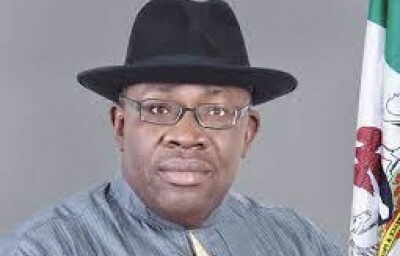The erosion of democratic principles through vote buying and manipulation of election results has become a pressing concern in Nigeria, prompting Senator Henry Seriake Dickson to issue a fervent call to action. Dickson, representing Bayelsa West, has implored Nigerians to actively resist these insidious practices, emphasizing the collective responsibility of stakeholders in combating electoral malpractice and the alarming trend of predetermined election outcomes. His appeal underscores the gravity of the situation, highlighting how these manipulations threaten the very foundation of democracy in the country. He points to the exploitation of vulnerable populations, particularly the poor and illiterate, who are often targeted with cash and material inducements by wealthy and influential politicians seeking to sway electoral outcomes in their favor. This manipulation, Dickson argues, disenfranchises the electorate and compromises the integrity of the democratic process, paving the way for unqualified leaders devoid of genuine commitment to national progress.
The senator’s critique delves into the systemic nature of electoral malfeasance, denouncing the abuse of state institutions, including the prefabrication of election results before votes are even cast. This preemptive manipulation undermines the legitimacy of the electoral process and erodes public trust. Dickson advocates for reinforced safeguards at polling units, placing the onus on electoral authorities to prevent fraud at its source rather than relying solely on post-election legal challenges, which often prove inadequate due to technicalities. He points out the frustrating reality of genuine cases of electoral fraud being dismissed on technical grounds, a situation that emboldens perpetrators who recognize the loopholes and exploit them with impunity. This cycle of manipulation and impunity perpetuates a culture of distrust and undermines the credibility of elections as a reflection of the popular will.
Dickson’s observations extend to the disconcerting phenomenon of individuals with limited popular support ascending to positions of power through fraudulent means. He laments the rise of candidates who lack the mandate of their own families or communities yet claim victory by leveraging state machinery and political influence. This disconnect between genuine support and electoral success further underscores the erosion of democratic principles. He highlights the legislative efforts underway in the Senate to address these electoral anomalies through stronger legislation, acknowledging the limitations of relying solely on the Independent National Electoral Commission (INEC). Dickson emphasizes the need for mechanisms to control the conduct of security personnel and other government agents involved in the electoral process, recognizing their potential influence on the outcome.
The senator’s statement also touches upon the pervasive influence of political opportunism driven by the desperation to win elections at any cost. He notes the increasing trend of politicians defecting to ruling parties, motivated not by ideological alignment or a desire to serve the public, but by the lure of undue advantages and access to state power. This trend, Dickson argues, further distorts the political landscape and prioritizes personal gain over genuine service to the nation. It underscores the systemic nature of the problem, where the pursuit of power trumps commitment to democratic ideals.
Dickson’s comprehensive critique of Nigeria’s electoral landscape serves as a wake-up call for citizens and stakeholders alike. His observations highlight the urgent need for comprehensive reforms to address the deep-seated issues of vote buying, manipulation, and the abuse of state institutions. The senator’s call to action emphasizes the collective responsibility of all Nigerians to safeguard the integrity of their democracy and ensure that elections truly reflect the will of the people. The ongoing legislative efforts he mentions offer a glimmer of hope, but the ultimate success hinges on the vigilance and active participation of the citizenry in demanding free, fair, and credible elections.
Ultimately, Dickson’s message underscores the fragility of democracy in the face of unchecked manipulation and emphasizes the pivotal role of citizens in safeguarding its principles. His appeal for collective action resonates as a crucial reminder that the future of Nigerian democracy rests not solely on legislative reforms, but also on the unwavering commitment of its people to resist manipulation and uphold the sanctity of the electoral process. The fight against vote buying and electoral malpractice is a fight for the very soul of Nigerian democracy, requiring a concerted effort from all stakeholders to ensure that elections remain a genuine reflection of the popular will and a cornerstone of a just and equitable society.


